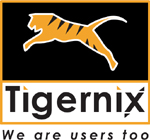Traditional Asset Management Approaches
Assets in any business are a critical affair to handle. Even though the term ‘Asset Management’ can be defined in many ways, we can oversimplify the idea as the system of managing, and organising wealth while creating and maximising value. Traditionally assets were considered either physical or monetary most of the time. So the traditional ways of handling assets usually make more static insights when creating prediction parameters.
Traditional asset management methods often omit newer assets such as data since many of those systems are designed for a slower, more steady business world. Traditional asset management involves tracking market rates, tax responsibilities and other financial liabilities such as debts and compiling interest. The goal of our asset management is to maximise profit over time while mitigating risk. Traditional asset management measures, including alpha, beta, tracking error and information ratio, are the return on investment parameters. None of these measures involves the relation between returns at multiple points in time.
Even though traditional methods rely on predicting the future by exploiting cracks, changes in market trends or entering and exiting certain investments before others, traditional asset managing methods were not equipped to provide such accuracy in predicting and foreseeing the future. Most of the time, the ability to survive in the asset management market in the past relied on human knowledge and the ability to predict the future using human capacity.
Digital Technologies That Empower Digital Alphas
Investment skills and managing asset skills involve forecasts and predictions; therefore, modern technology, especially data science, offers so much. Unlike traditional methods of managing assets, digital technologies help businesses monitor market insights dynamically and get involved by taking informed decisions. By using data as an asset itself, modern digital technologies have broadened the horizon of asset management.
Data is no longer considered a by-product of the business. It is rapidly becoming one of the significant assets of an organisation. Data science is helping to transform data into knowledge, and through that knowledge, businesses are making informed decisions about the future.
A data-driven approach helps refine and optimise their business process and take more drastic and innovative decisions towards identifying robust opportunities to win against their competition. To find alpha in data, we need to do more than just sort through immense data. Modern advances in technologies can be used to face the challenges of working with monolithically large amounts of data, such as data indigestion.
Artificial Intelligence and IoT
Infusion of Artificial intelligence (AI) into business processes and adoption of cutting-edge technologies such as the Internet of Things significantly improve businesses’ decision-making in real-time. In the future, advanced technologies such as AI and IoT will drive the world of business to a new world made out of an intelligent cloud.
Advanced Analytics
Benefits of Being Data-Sensitive
- Data-driven decisions will refine having a well-organised supply chain that is sensitive to dynamic market changes. It will help businesses provide a seamlessly smooth service to customers and keep up with their dynamically changing needs.
- Being data-sensitive will benefit stakeholders as they will have state of the art tools such as business intelligence. Having the correct data will provide them with an environment where they will feel well informed, leading to a seamless process between the business and stakeholders.
- Data mining is an excellent way of creating new wealth out of nothing. Being data-sensitive will open the business processes to identify new and better ways to refine their business to create more value over time.
- Imagine the benefits a business will have if they have a way to know about the wear and tear of their machinery; being data-sensitive will provide the company with a complete idea of how, when and where the maintenance will be needed in the future. So it will help the business save money, time and resources to maintain an effective, productive and smooth line of work.
The Impending Asset Future
The world of business is rapidly changing. Data is becoming the predominant and most important asset of companies. Data enables fast, accurate insights to make business decisions. Advanced technologies such as ‘Artificial Intelligence’,Internet of (IoT)Things, and ‘Big data’ are becoming the backbone of a new age of business decision-making.
Instead of traditional approaches that give only predictions based on one point in time, the new age technologies provide more refined, dynamic, and real-time insights and predictions. While advanced analytic technologies open up the untapped potential of data, investing more in data science and introducing advanced technologies such as artificial intelligence and IoT leads to more sophisticated and well-planned business investments.







